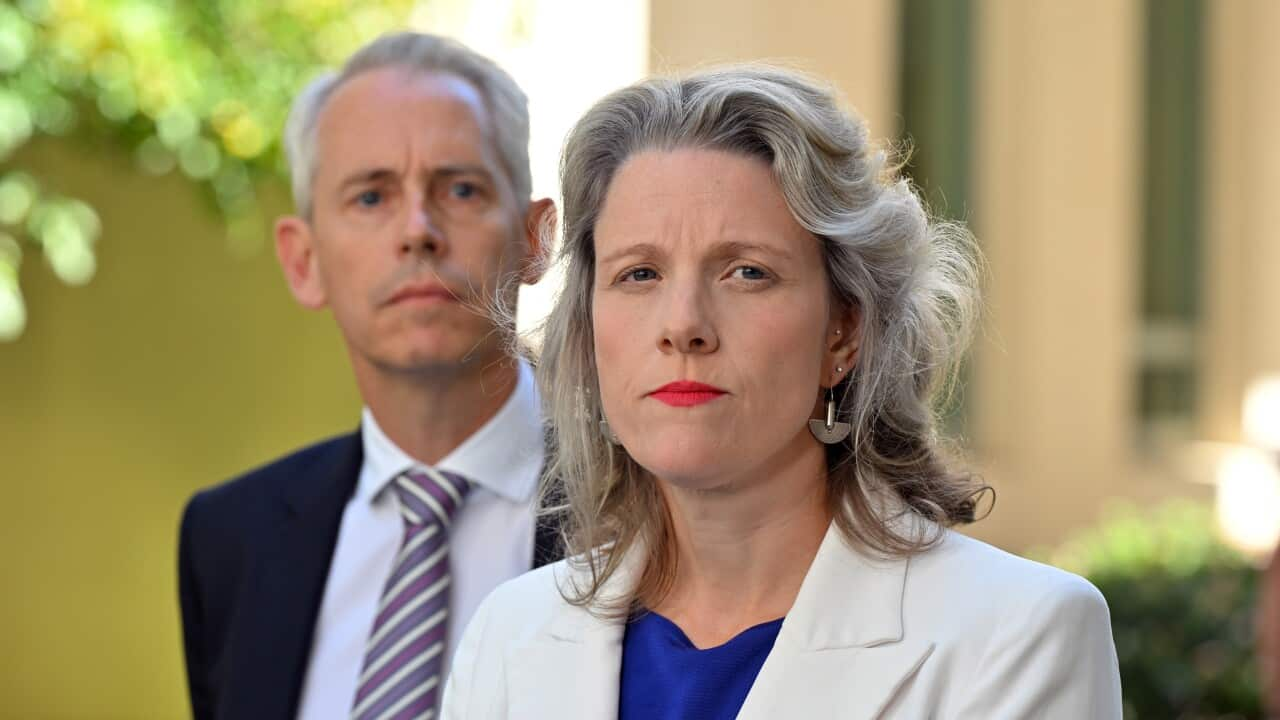On the ground floor of the federal parliament, there is a fountain which, according to folklore, is designed to allow discussions without listening ears.
In the wake of sustained attacks on Immigration Minister Andrew Giles and Home Affairs Minister Clare O’Neil by the Opposition, the fountain is getting a workout.
The water cooler talk has centred on whether the prime minister might shuffle the decks in the coming weeks to move both ministers out of the beleaguered portfolios.
The political debacle has been a slow burn. But now, some within the government are talking about it as a bin fire and one that needs to be extinguished with ministerial changes.
The context is important.
In late November, the High Court made a snap call on the case of a detained Rohingya man known as NZYQ, leading .
Soon after came the first of many calls from the Opposition for Giles to resign.
Parliament was recalled before Christmas to , in an attempt to re-jail the worst offenders and to impose ankle bracelets in some cases.
The government set up a Community Protection Board, including law enforcement, to assess cases.
Earlier this year, the government tried and failed to rush through another batch of bills to pre-empt a new court hearing on a different case — an Iranian asylum seeker known as ASF17.
Then, an image was released by WA Police, documenting a . Just over a week later, across national newspapers, it was revealed one of the alleged assailants was part of the NZYQ cohort.
The government then had a win, with the High Court rejecting the ASF17 appeal, avoiding the release of more than 100 extra detainees.
But this week’s Senate estimates hearings have pushed the chatter over the frontbenchers responsible for visas to a crescendo.
The Opposition managed to extract confirmation during the budget estimates process that some of the convicted murderers released after the NZYQ High Court decision are not being forced to wear ankle bracelets.
Their curfews and the ankle bracelet conditions for more than a dozen sex offenders (including child sex offenders) have also been relinquished.
The government and the department have repeatedly pointed out that they are required by law to consider a range of factors.
Giles and the prime minister have pointed out that one of the other alleged assailants in the bashing of Simons was let out of detention when Opposition leader Peter Dutton was in power.
Giles has further pointed to reporting in Nine Papers, published during Question Time, that Dutton was also responsible for releasing people convicted of serious crimes, including murder and sex offences.
Giles is under the most pressure over the lack of apparent surveillance on those NZYQ detainees convicted of murder who have managed to get the ankle bracelet conditions removed, telling Sky News on Thursday that they are being subjected to drone surveillance instead.
Border Force is yet to respond to an SBS World News request for information about which laws allow that approach.
But the border force has responded in a broad sense, saying: “The use of surveillance technology by law enforcement agencies is governed by strict legislative requirements”.
The problem has been exacerbated by the outcry over Ministerial Direction 99, put in place by Giles last year, following pressure from New Zealand.
It meant the Administrative Appeals Tribunal would take into account community and family ties in hearing appeals against deportation. It was designed to avoid sending people back to New Zealand with citizenship but no real country connections.
But it also led to a series of successful appeals for people convicted of serious crimes.
The direction is now being redrafted but the New Zealand Prime Minister Christopher Luxon has resurfaced the Ardern government’s “grave concerns” about what that might mean for deportations.
The prime minister wants to hold onto stability in his frontbench. He has yet to lose a minister.
Furthermore, Giles is a close personal friend and ally on the front bench.
Another complication is that the immigration portfolio is in the outer ministry, so making a change there leaves the job open to a relatively small group.
Giles, as a former refugee lawyer, maintains he is still the best person to hold onto the job.
But the ground floor water feature remains a magnet for conversations about the fact that just weeks after the budget, the big spending document and its new policies are on the periphery of the news agenda.
Instead, the political conversation has been overtaken with feverish speculation about what reshaped frontbench the prime minister might take to the next election and who might be handed the immigration job.
But as one senior frontbencher put it, who would really want to take on one of the toughest jobs in the building?
The Opposition is aware this is not the front-of-mind issue for most Australians, but senior strategists in the party believe keeping this issue in the headlines slowly erodes public confidence in the government and by extension the prime minister.
One cabinet minister who ended the political week downcast lamented that every day the story runs, the cost of living solutions from the government are minimised, leaving the impression Labor isn’t doing enough to help.
